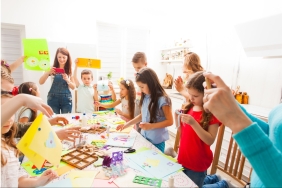Healthy relationships are based on communication and understanding between two people. Anger management and healthy discussion skills in relationships are essential to prevent or resolve potential conflicts. Differences, expectations and values between people can sometimes cause conflicts. Therefore, anger management and healthy discussion skills play an important role in maintaining and deepening relationships.

Anger Management
Anger is a natural reaction of people and is an emotional state. However, managing anger effectively helps create a healthy communication environment in relationships. Here are some effective strategies for anger management:
- Being aware of anger: Anger causes a series of physiological responses in the body. It's important to recognize when you're feeling angry. Signs of anger may include rapid heartbeat, facial flushing, tension, or irritability. By knowing yourself and recognizing the signs of anger, you can begin the process of controlling your anger.
- Breathing and calming down: It is important to take deep breaths and calm down in times of anger. Breathing helps your body relax and calm down. While breathing deeply, take the breath in through your nose and exhale slowly through your mouth. During this process, you can motivate yourself with a calming sentence.
- empathize: To control your anger, it is important to understand the other party's point of view and empathize. Empathy is the ability to understand another person's feelings and perspective. Establishing empathy increases your understanding and creates a positive communication environment in the relationship.
- Finding a healthy way out: Expressing your anger in a healthy way prevents conflicts from escalating. When you are angry, choose to use the “I” statement to express your feelings instead of using angry or aggressive expressions. For example, “I feel very angry, can we have a calmer conversation?” You can use an expression like:
Healthy Discussion Skills
Healthy discussion skills are an important way to manage conflict in relationships. Here are some tips for developing healthy discussion skills:
- To listen: Managing discussions effectively requires active listening skills. It is important to listen with full attention to the other party and understand the feelings, thoughts and needs he or she wants to express. While listening, try to focus without interruption, judgment or prejudice.
- Recognizing prejudices: Prejudices and prejudiced thoughts in discussions can prevent healthy communication. It is important to recognize your own biases and evaluate the situation objectively. To reduce prejudice, try to be open to different points of view and respect the other party's opinions.
- Expressing needs and feelings: It is important to express your feelings and needs clearly during the discussion. Express your feelings and needs using the “I” statement. For example, “I feel neglected, can we spend more time?” You can use an expression like: Expressing your feelings and needs helps the other party understand you better.
- Being solution oriented: The purpose of discussions is to solve the problem and improve the relationship. By focusing on solving the problem, you can use your collaboration and compromise skills. Try to find a common solution by mutual agreement. Being solution-oriented helps strengthen the relationship and reduce conflicts.
- To stay calm: It is important to stay calm during arguments. Reacting with anger or irritation can cause you to lose control of the discussion and negatively impact the communication. You can use strategies to stay calm, such as taking deep breaths, taking breaks from time to time, or expressing your negative emotions in other ways.
- be open to compromise: Healthy discussion requires mutual compromise and flexibility. It is important to express your own rights and needs, but it is also necessary to respect the other party's rights. Being open to compromise ensures progress toward finding a solution that meets the needs of both parties.
Here are my suggestions for you for a different perspective:
Understanding Body Language and Nonverbal Communication
A different approach to anger management and healthy discussion skills in relationships is to understand and use body language and nonverbal communication. Communication is not limited to just verbal expressions. Our body language, gestures, facial expressions, posture and tone are also part of our communication. Here are some tips for developing healthy discussion skills using body language and nonverbal communication:
- Observe with empathy: During an argument, it is important to carefully observe the other party's body language and non-verbal communication. Try to empathize and understand how the other party feels and thinks. Catching clues from body language helps you understand the other party's true intentions and emotional state.
- Checking your own body language: In communication, you use not only your words but also your body language. Controlling your own body language and nonverbal communication is important for healthy discussion skills. Maintaining a calm, trusting stance, maintaining eye contact, and relaxing your body will help the other party understand you better and help the discussion proceed constructively.
- Paying attention to emotional signs: It is important to pay attention to emotional signs in terms of anger management and healthy discussion skills. The other party's body language and nonverbal expressions can reflect their emotional state. For example, a tense facial expression or body tension may indicate that the other party is angry or stressed. Recognizing these signs and reacting appropriately is important to better understand the course of the argument.
- using silence: Silence can be an important tool during discussion. Especially in situations where blood pressure rises, it may be beneficial to choose silence for a while. Silence offers both parties the opportunity to take a break and think. It can also help the discussion proceed in a more constructive manner.
- verifying nonverbal signals: Before misinterpreting the other party's body language and non-verbal expressions, you can resort to verbal communication to verify. “Is this the current situation for you?” or “I understand this is what's important to you?” With questions like these, you can better understand the other party's feelings and thoughts.
Understanding body language and nonverbal communication is an important tool for developing healthy discussion skills and increasing emotional understanding. This approach deepens communication, reduces conflicts and creates a healthy relationship environment.
Anger management and healthy discussion skills in relationships are critical for healthy communication and relationship development. Managing anger effectively increases trust and reduces conflicts in the relationship. Healthy discussion skills enable conflicts to be resolved constructively and increase the quality of communication in the relationship. It takes constant effort and understanding to develop these skills. By using anger management and healthy discussion skills in relationships, you can build deeper and more satisfying relationships.






















